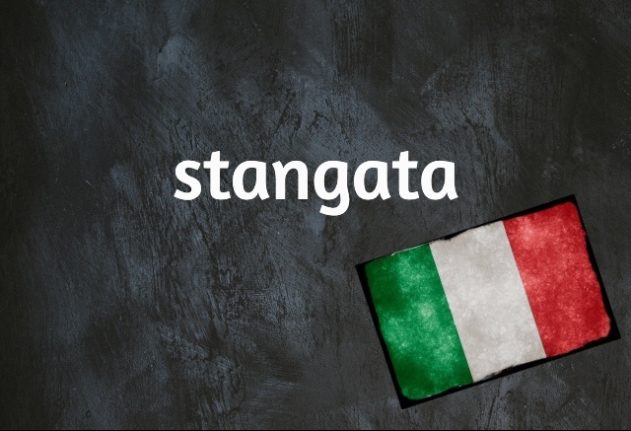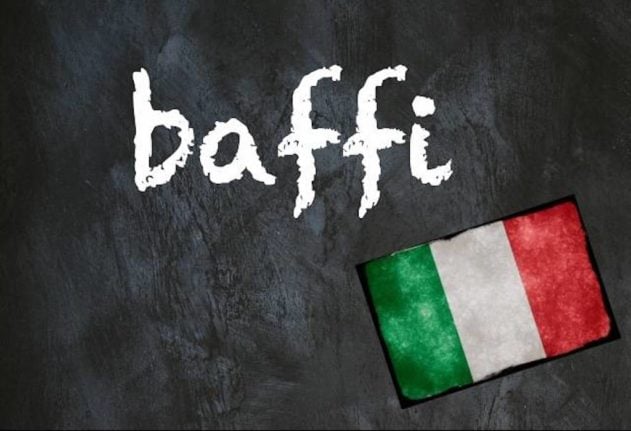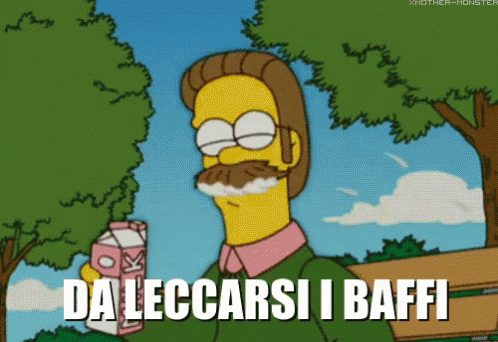As soaring energy prices keep driving up the cost of living – Italy’s inflation hit a 37-year high earlier this week – you might have overheard friends or colleagues complaining about the latest ‘stangata’.
But what exactly do Italians mean by ‘stangata’ and why is the word so relevant now?
‘Stangata’ is a fairly common word in spoken Italian and speakers generally use it to refer to any event that causes – or is expected to cause – significant damage to one’s personal finances.
Usually, the event in question is something that couldn’t possibly be anticipated, as in the following cases:
E’ arrivata la bolletta del gas stamattina…Dobbiamo pagare 300 euro.
Oddio, che stangata!
We got the gas bill this morning…It’s 300 euros.
Oh God, what a blow!
Quest’anno, abbiamo pagato 600 euro per i libri scolastici di Matteo.
Però, che bella stangata!
This year, we’ve paid a total of 600 euros for Matteo’s textbooks.
Wow, that’s a big hit!
READ ALSO: Back to school in Italy: how much will it cost, and how can you save money?
As the above examples show, ‘stangata’ is mostly used as part of an exclamatory remark or reply and it is usually preceded by ‘che’, which is used here as an adjective and is roughly equivalent to the English ‘what a …’. In this context, the most appropriate English translations are ‘blow’ and ‘hit’.
Don’t forget: if you’re planning on using the word in this way, it’s vital that you do so according to Italian etiquette, that is with eyes nearly popping out of your head and the most dramatic look of bafflement painted across your face. Feel free to practice in front of a mirror to perfect the ‘stangata’ face.

Naturally, the word can also be used in a regular sentence and with far less intensity, like so:
Potremmo fare un bel viaggio a fine mese.
Non penso proprio. Con l’ultima stangata delle bollette, è già tanto se ci arrivo a fine mese.
We could go on a trip at the end of the month.
I really don’t think so. Judging by the latest increase in energy bills, I’ll be lucky if I make it to the end of the month.
Now that you broadly know how and when to use the word, you might be wondering where it comes from.
Well, ‘stangata’ comes from ‘stanga’, which is a largely disused word indicating the wooden board (or pole) people once used to shut their front door or windows from inside the house.
Following a very common Italian linguistic pattern – just think of ‘bastone’ and ‘bastonata’ – ‘stangata’ literally means ‘a blow dealt with a wooden board’.

At this stage, it’s pretty clear why the word is used to refer to substantial financial damage – getting hit with a stanga is as painful as losing a big lump of earnings.
READ ALSO: From coffee to haircuts: How the cost of living varies around Italy
It’s also worth noting that some Italians might use the word ‘salasso’ instead of ‘stangata’. Just like ‘stangata’, ‘salasso’ refers to any relatively hard financial blow, though its original meaning is quite different as it refers to the ancient (and, luckily, now-defunct) medical practice known as ‘bloodletting’.
L’abbonamento mensile per il trasporto pubblico è salito a 150 euro.
Ammazza, che salasso. Non è accettabile.
The monthly public transport pass has gone up to 150 euros.
Ouch, what a blow. That’s unacceptable.
Do you have an Italian word you’d like us to feature? If so, please email us with your suggestion.




 Please whitelist us to continue reading.
Please whitelist us to continue reading.
Member comments